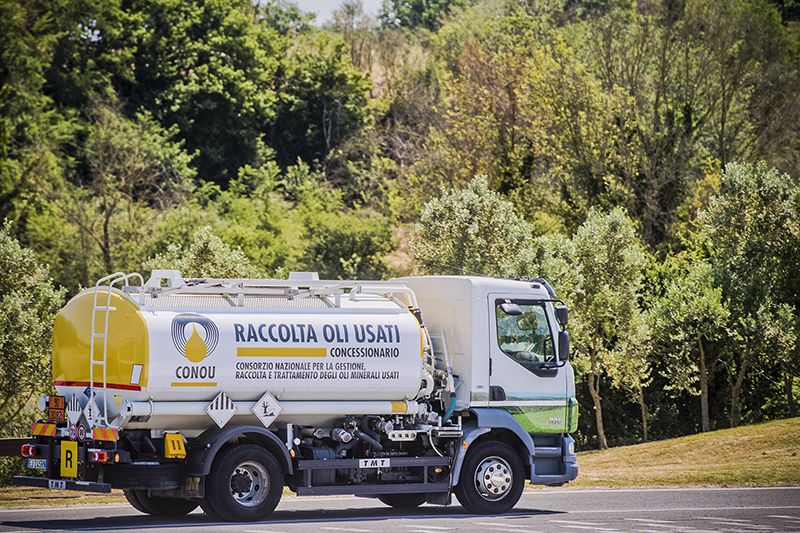This article is also available in Italian / Questo articolo è disponibile anche in italiano
CONOU has been collecting and regenerating used mineral oils in Italy for exactly forty years. Throughout these four decades, the Consortium has become an example of a successful consortial system and effective circularity, substantiated by data and reliability. In 2023, CONOU collected 183,000 tonnes of used mineral oils, almost the entirety of remnants from what is put on the market. 98% of the oil collected was regenerated and reintroduced into the economy, nearly 40% more than the European average (61%).
CONOU's winning model
CONOU's consortium model, based on the Extended Producer Responsibility (EPR) principle, proves, year after year, that it is instrumental to both European circularity ambitions and the needs of stakeholders in the supply chain: from producers that manufacture lubricants to the collectors of used oils and recycling operators.
There are approximately one thousand companies involved. 59 are licensees that collect used mineral oils free of charge across over 100,000 collection points. Regeneration, meanwhile, takes place in three sites, thanks to a refined capacity to process used oils even if they are highly polluted.
"The circular economy is the key to our future and can provide effective responses to climate change and emergent economic, social, and employment-related challenges," says CONOU President Riccardo Piunti. "We are truly proud of keeping the Italian flag held high in our sector in Europe, and we are glad that our consortial, not-for-profit model is an example that other countries are looking to with great interest."
40 years of innovation and circularity
From 1984 to the present day, the consortium has had to overcome many challenges, accompanying the transformation of small collection businesses into sophisticated operations, with cutting-edge systems and technologies.
With CONOU's support, the recycling rate has grown visibly, almost reaching perfection: oils that must be burned because they cannot be treated have decreased from 20% to less than 2%. The wave of pollution derived from PCBs has also been overcome; for years, this toxic industrial oil, whose production was banned in the early 1980s, was found during used oil collection (and it still sometimes appears).
The introduction of an “End of Waste” standard in 2007 (then under a different name) made it possible to establish when and how regenerated oil stops being waste. In recent years, the Consortium has also been successful in combating the evasion of environmental fees while maintaining its ethical and not-for-profit nature.
Quality, both of waste and regenerated products, as well as of consortial processes, is the pillar on which CONOU builds and designs the circularity of tomorrow. Thus, the Consortium implements its winning organisational model, where circularity is not only environmentally but also economically sustainable.
Regenerating used oil is good for the environment and the economy
Regenerating used mineral oils has positive impacts both on the environment and the balance sheet. In 2023, CONOU's work avoided the emission into the atmosphere of 127,000 tonnes of CO₂ equivalent, with a 57% reduction compared to alternative production from crude oil of the same lubricant bases, diesel, and bitumen. According to CONOU's Sustainability Report 2023, the regeneration of spent oils leads to a series of environmental benefits: 7 million gigajoules less in fossil fuel consumption, improvements in soil quality, and 60 million cubic metres in water savings.
The economic effects are also positive. CONOU generated a total economic impact worth 81.3 million euros, a 12% increase compared to 2022. Given Italy's status as a resource-poor nation in terms of raw materials, the Consortium's work enabled a reduction of the demand for imported fossil-based materials worth approximately 105 million euros.
This content is produced thanks to the support of sponsors
Image: CONOU



